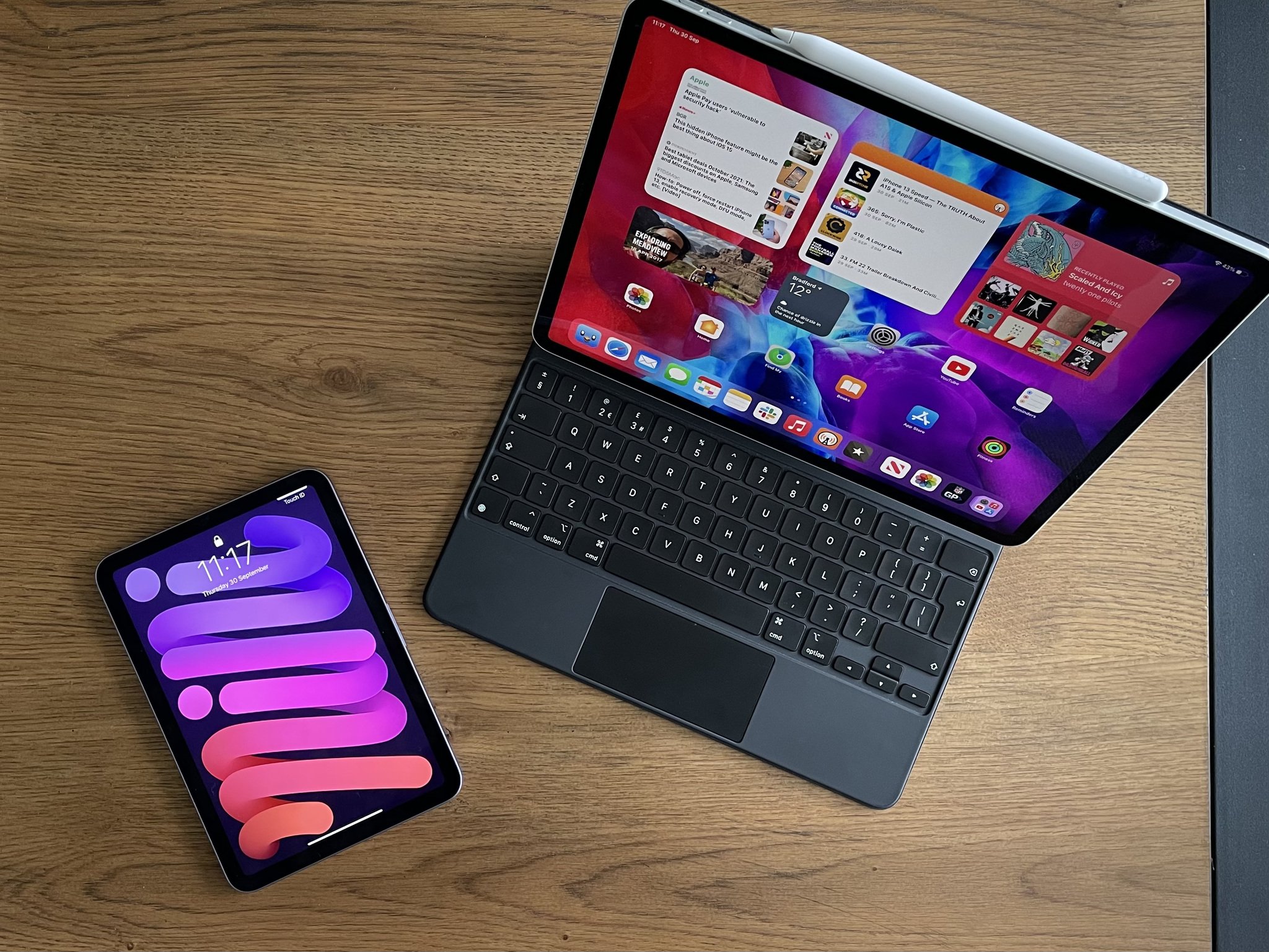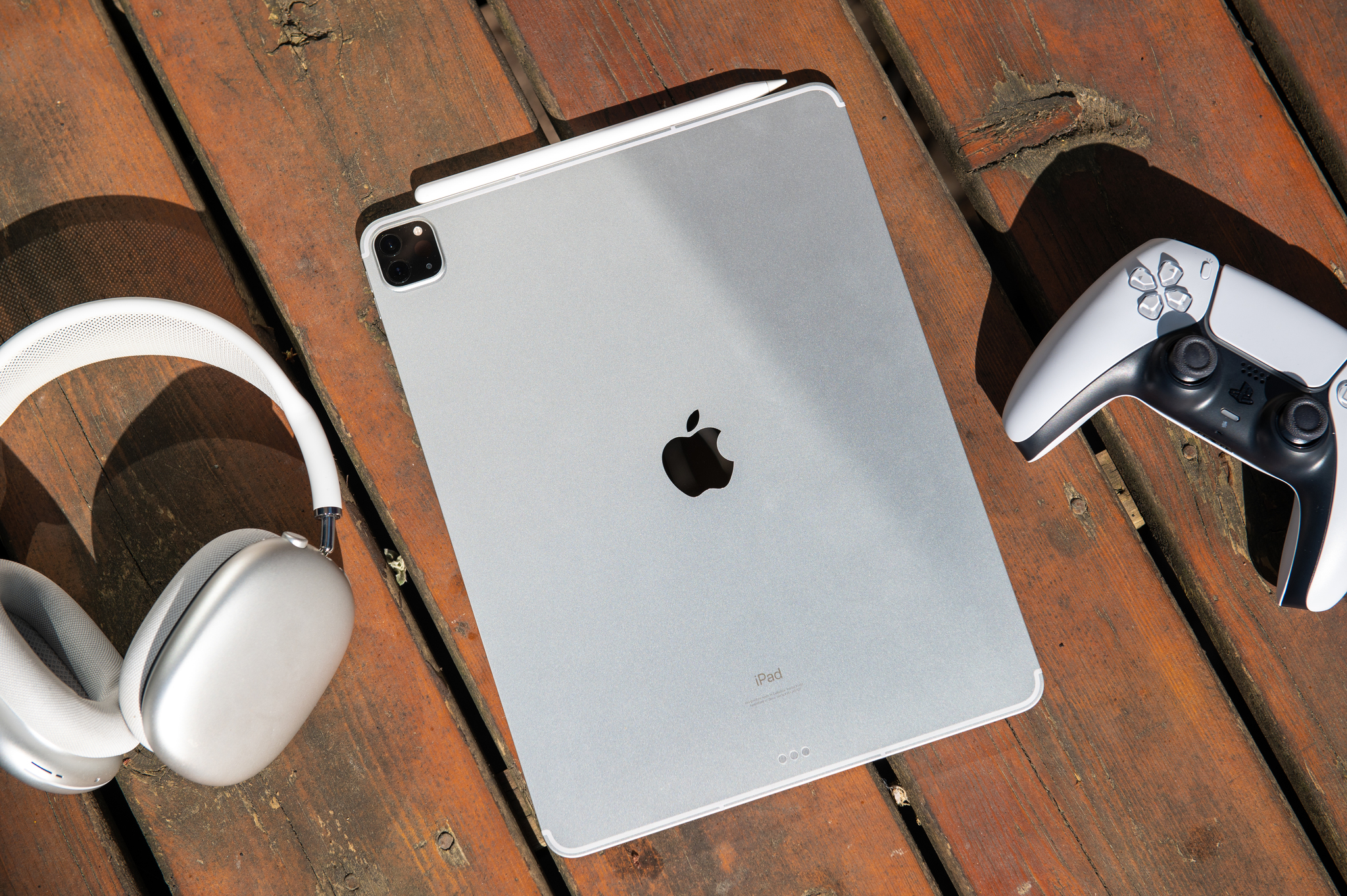As Apple's oldest current-gen model, iPad Air is overdue for an upgrade - TechnW3
As the oldest device in Apple's current iPad lineup, iPad Air is the most likely to see a 2022 redux.
In 2021, Apple's iPad lineup saw some of its most significant hardware updates in recent memory. It was a breakthrough year, particularly at the high end of the lineup where devices have become more powerful than ever.
However, there is one iPad model that sticks out like a sore thumb in Apple's current crop having received no attention in 2021: the iPad Air 4. Last refreshed in the fall of 2020, Apple's 4th-gen iPad Air is a clear candidate for some love in 2022. Here's what we expect to see in the new iPad Air this year.
Lagging behind
Though the iPad Air 4 is 18 months old at this point, it's still not a bad device. On the contrary, thanks to its careful balance between power and price, we still list it as the best iPad for most people. And yet, there are obvious areas for change in 2022.
First off, the processor. Having been released in 2020, the current iPad Air runs the A14 Bionic system-on-a-chip that is also featured in the iPhone 12. At the time it was a significant jump in power (40% faster CPU performance than A12 and 30% faster graphics) but it has been significantly outpaced by later A15 and M1 chips found in Apple's other iPad models.
Depending on when the new iPad Air is released, it could adopt the A15 Bionic found in 2021's iPad mini 6 and iPhone 13 or it may get next year's updated A-series chip. If Apple wants to push the M1 chip down the iPad line already, it could even find its way into the iPad Air if the iPad Pro snags the M1 Pro and M1 Max chips or newer.
There are some obvious areas for improvement in a new iPad Air.
Cameras, particularly the front-facing ones, were a huge focus for the iPad last year. All of the 2021 models feature a 12MP Ultrawide FaceTime camera that enables the smart Center Stage panning that keeps you in the frame on a video call. That feature needs to come to iPad Air next, so we'll undoubtedly see a front-facing camera upgrade — perhaps one that includes Face ID hardware, too.
On the back, the iPad Air camera is not too far behind the iPad mini in terms of specs so it might get less attention, but expect the quad-LED True Tone flash to come to the 2022 iPad Air along with 1080p video recording in 25 fps and 30 fps, in addition to 60 fps, to get it to reach parity with the latest mini.
The last obvious upgrade for the iPad Air is in cellular connectivity. Being the top-of-the-line model, the iPad Pro was first to get 5G in spring 2021 with the iPad mini following suit in late 2021. Apple has shown this isn't a feature it wishes to restrict to the Pro line, so expect it to make an appearance on the next iPad Air spec sheet.
New design and display?
iPad Air 4 was the first to get the "edge-to-edge" look we're used to seeing with Apple's iPad now, but don't expect the new iPad Air to debut any significant upgrades on the design front. Everything we're hearing points to a spec-bump release this time around, so expect the overall form factor to remain much the same. The only real visual change we're likely to get is some new aluminum hues to line up more closely with those of the iPad mini 6.
Don't expect significant changes on the design front.
When it comes to the display of the iPad Air 5, the jury's still out. Rumors had indicated an OLED panel was coming to the iPad Air this year, though more recent reports suggest that upgrade has been pushed to 2023 or later. It would have been the first iPad to feature an OLED panel, with the technology having been reserved for iPhone and Apple Watch models thus far, but it looks like we'll have to wait a bit longer for its first iPad showing.
There remains a question as to whether mini-LED display tech will come to the iPad Air this year. The 12.9-inch 2021 iPad Pro showed off mini-LED in Apple products for the first time and it has since jumped over to the latest 2021 MacBook Pro models. With OLED still a ways off, mini-LED may find its way to other iPad models, though Apple may want to keep it as a Pro-level feature as a differentiator of the high-end lineup.
The issue of differentiation
Apple is usually very proficient at providing buying options for its plethora of potential purchasers, but the iPad lineup actually leads to some tricky consumer choices.
iPhone buyers, by contrast, have three choices (ignoring the previous-gen models): the mainstream iPhone, the iPhone Pro, and the iPhone SE. Those looking for something more basic and affordable will be well-served by the SE, the adjective-less iPhone is the one most people will buy, and the Pro model serves those that really care about having the best specs.
It's an even more straightforward affair on the portable Mac side with the MacBook Air and MacBook Pro having very different addressable markets and price points that are much further apart.
For the iPad, Apple has four distinct product lines of which the Air is the most awkwardly placed. The iPad mini differentiates itself as the ultra-portable option, the 10.2-inch iPad as the cheap "every-person" model, and the Pro as the one for power users. The iPad Air sits just below the iPad Pro in terms of size, specs, and price but every upgrade the device gets eats into the market for the 11-inch iPad Pro.
Every upgrade the iPad Air gets eats into the 11-inch iPad Pro's market.
Usually, Pro-grade features trickle down to the iPad Air but Apple has yet to put mini-LED into the 11-inch iPad Pro and it's unlikely to share that tech with both the smaller iPad Pro and the iPad Air at the same time. The M-series chips are also an easy Pro sell for Apple, so it's difficult to imagine the company being in a rush to push these down the lineup either. Camera upgrades that helped shift iPhone units are less important on iPad and the increased I/O offering of the new MacBook Pro models is not something the iPad Pro replicates currently.
There's a tough balance to strike between reserving your best features for the top-of-the-line models and moving those technologies down the lineup and the iPad Air finds itself at a strange juncture on that front. I expect the iPad Air and iPad mini will fall into something like a tick-tock upgrade schedule on alternate years with Pro-level features trickling down gradually over time, but only when the iPad Pro gets some advanced new features to shout about.
Something new in the Air
Regardless of what Apple chooses to include in the new iPad Air, all signs point to the device being the strongest candidate for a refresh in 2022. Apple is rumored to be holding a spring event, so we could see it unveiled in the next few months. If not, we're likely looking at a fall launch for the iPad Air 2022 upgrade.
from iMore - Learn more. Be more.
via TechnW3





No comments: